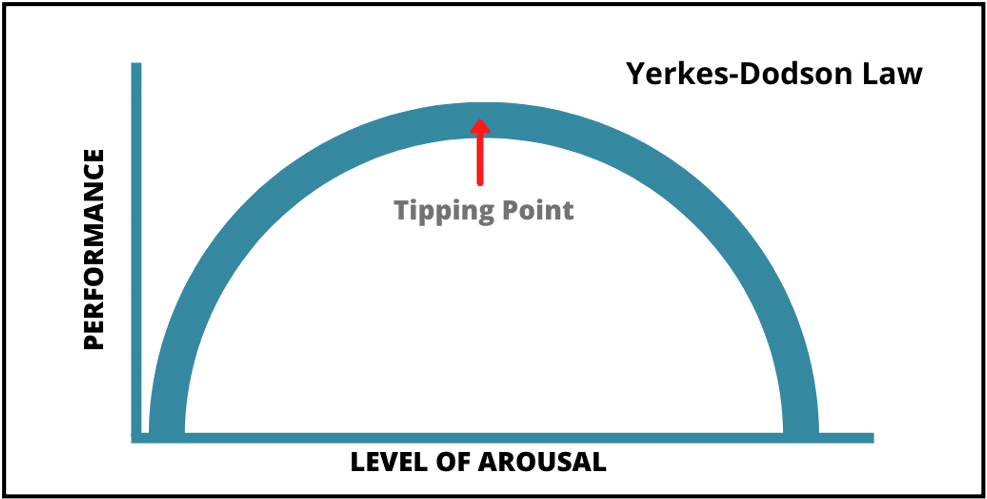Have you noticed that each new writing project starts out feeling fun and exciting? The closer you get to your deadline, though, the more difficult and less enjoyable it becomes? Before you know it, you are stuck in a writing rough spot.
In November, many nonfiction writers took on the challenge to write a book in a month. Setting a 30-day deadline like that is initially very motivating. The impending deadline triggers you to raise your performance and deliver results. That little bubble of anxiety you get as the deadline approaches helps to focus your attention and keep your eye on the prize—a finished first draft.
A bit of stress is good. It‘s like a shot of adrenaline to a runner, and it keeps you engaged and powering forward.
But then you hit a rough patch. Suddenly, you come to a full stop.
The pressure to perform becomes too high, and you doubt your ability to meet the goal. That’s when you begin creating excuses and start procrastinating. Sound familiar?
Everyone has a different stress tolerance tipping point. When you go past that optimal level of necessity and urgency, your deadline stops being energizing and motivating and instead becomes a writing roadblock. When this happens, it’s a danger sign. Pay attention! You might abandon your writing project or goal completely.
The Relationship between Stress and Performance
This behavior pattern can be explained by Yerkes-Dodson Law, which states that our performance increases based on the level of stress. Still, this form of arousal only motivates us to a specific point.

Deadlines provide a physical stimulus to motivate us to achieve the goals we set. But once we pass that optimal level of stimulation (and this will be different for every person), the stress level gets too high. That’s when we procrastinate or give up altogether.
This lapse in enthusiasm or feeling of being overwhelmed isn‘t only relevant to a 30-day writing sprint; it relates to any scenario involving a deadline. That means it might rear its head when you are completing a final revision for a publisher’s deadline, trying to turn in a magazine article by the contracted due date, or getting your next blog post published on schedule.
Procrastination is the Red Flag
Before you take on any writing deadline, acknowledge that your tipping point exists. Then be on the lookout for the red flags that signal its arrival. At that point, use techniques to navigate your way out of your writing rough patch.
Creatives talk about a starting and finishing energy, and they usually excel at one and not the other.
I have an enthusiastic starting energy. I approach every new writing sprint or deadline with enthusiasm, and I have this drive to write. My thoughts come spilling out of me, and it‘s almost as if I‘m writing on autopilot. My freewriting sessions are prolific and productive.
When I begin a new project, I write without evaluating or analyzing my content. I focus on getting words on a page. My tipping point happens when I begin to evaluate what I‘ve written. Then the excuses and procrastination begin:
- I don‘t have time to write.
- I have an urgent issue to deal with today.
- I‘m too tired.
- I‘ll write later.
- My wrist is aching; maybe I need a rest from writing.
Before I know it, I’m in full procrastination mode. If I listen to this self-talk, I‘ll miss one day of writing, and that quickly runs into two. The more days I don’t work on the project, the easier it is to completely give up. I get stuck in a writing rough spot.
For you, maybe the self-talk revolves around overwhelm or stress.
- This is way too stressful. I need a break.
- I’m overwhelmed, so I just won’t work on the project today.
- There’s no way I’ll meet that deadline, so why try?
The more often you listen to that voice in your head, the less likely you will pick up the project and the pace again.
Striving for Perfection
It took me a few writing sprints, like the Write Nonfiction in November Challenge, to acknowledge that my procrastination cloaked another reason for not writing—I doubted my ability to achieve perfection. My mind would begin a negative round of self-talk, including:
- Who am I kidding? I‘m not a proper writer.
- I don‘t have enough good ideas for a book.
- Nobody is going to buy this book.
- I don‘t know enough about this topic!
- I can’t put this in a book and sell it.
- My writing isn‘t good enough.
Rather than address these negative thoughts and perfectionist tendencies, I’d give myself excuses not to write.
I knew that if I wanted to change my results, I had to change how I mentally handled my tipping point.
How to Get Out of a Writing Rough Spot
As soon as you hit your writing rough patch, take a look at the underlying cause that’s triggering your procrastination. Are you too stressed? Do you feel overwhelmed? Are you telling yourself you can’t meet the deadline? Or are you striving for perfection? Do you fear that you’re writing isn’t good enough? Are you worried about being criticized? Are you suffering from imposter syndrome?
We give too much control to the inner critic, and we believe what it tells us. But it’s important to remember that we‘re in control of this internal voice, and we can change the narrative.
We have the power to turn any negative thoughts into positive self-talk that refocuses us on that end goal of writing a book in 30-days or completing any nonfiction project by a given deadline.
Doing a 180-turn on a negative thought doesn‘t work for me. For example:
- From: My writing isn‘t good enough.
- To: My writing is good enough!
It‘s just too simplistic and difficult to embrace because the leap is too large. But I‘ve found that reframing the positive reinforcement works for me. For instance:
- My writing is good enough for a first draft, and I don‘t have to achieve perfection. I‘m going to achieve my goal of getting words on a page during this writing sprint because I have the luxury of an editing phase after I’ve reached the deadline. I can‘t edit a blank page, so I need to keep writing and polish it to perfection after the sprint!
Perfectionism can be debilitating. Additionally, it adds to the overwhelm. That means you reach your tipping point faster. You have limited time available. Your goal needs to be to create a rough first draft that will improve with every round of editing and finish on time.

As well as using positive reinforcement, I find motivational quotes are an effective quick burst of inspiration. If I can’t find ones that resonate with me, I create my own: It‘s only a first draft. Get on with it! You can meet your deadline! Just write!
I write my visual prompts on post-it notes. When I catch myself questioning my writing ability, they‘re in my line of sight as reminders to refocus and keep writing.
Four Steps to Consistent Writing
It’s best not to overthink your writing rough patch. Instead, use a simple formula for success:
- Be on the lookout for your procrastination behavior.
- Be honest with yourself about the root cause.
- Silence your inner critic with positive reinforcement.
- Create visual reminders to inspire you to carry on writing.
The key is to replace that critical self-talk away with a positive narrative. Your doubts may creep back in tomorrow. However, the more often you practice positive self-talk, the easier it’ll be to power through your writing rough patch, produce excellent work, and finish your project on time.
What techniques have you used to get out of a writing rough spot? Share in a comment your favorite quotes and the positive reinforcement you use to overcome your inner critic. And don’t forget to share this post!
About the Author
Jay Art ale abandoned her corporate career to become a digital nomad and full-time writer. She’s an avid blogger and a nonfiction author helping travel writers and travel bloggers achieve their self-publishing goals. Join her at Birds of a Feather Press where she shares tips, advice, and inspiration to writers with an independent spirit.
ale abandoned her corporate career to become a digital nomad and full-time writer. She’s an avid blogger and a nonfiction author helping travel writers and travel bloggers achieve their self-publishing goals. Join her at Birds of a Feather Press where she shares tips, advice, and inspiration to writers with an independent spirit.
 Do you want to learn more about becoming a nonfiction author? Check out the Nonfiction Writers’ University. Get the basic education you need and the coaching to help you succeed as a nonfiction writer. Take advantage of monthly live educational and group coaching events. Enjoy a 30-day trial membership for only $1.
Do you want to learn more about becoming a nonfiction author? Check out the Nonfiction Writers’ University. Get the basic education you need and the coaching to help you succeed as a nonfiction writer. Take advantage of monthly live educational and group coaching events. Enjoy a 30-day trial membership for only $1.
Do you want a more advanced approach to your nonfiction writing education? Join the Nonfiction Writers’ University MASTERS program. Receive ongoing live Certified High Performance Coaching, Author Training, and Authorprenuership Training as well as monthly educational and group coaching events. Learn all the steps to becoming a successful—and profitable—author. Discover how (finally) to write consistently, boldly, enthusiastically, and productively. Develop the mindsets, strategies, habits of the world’s most successful writers. Click here to learn more.
